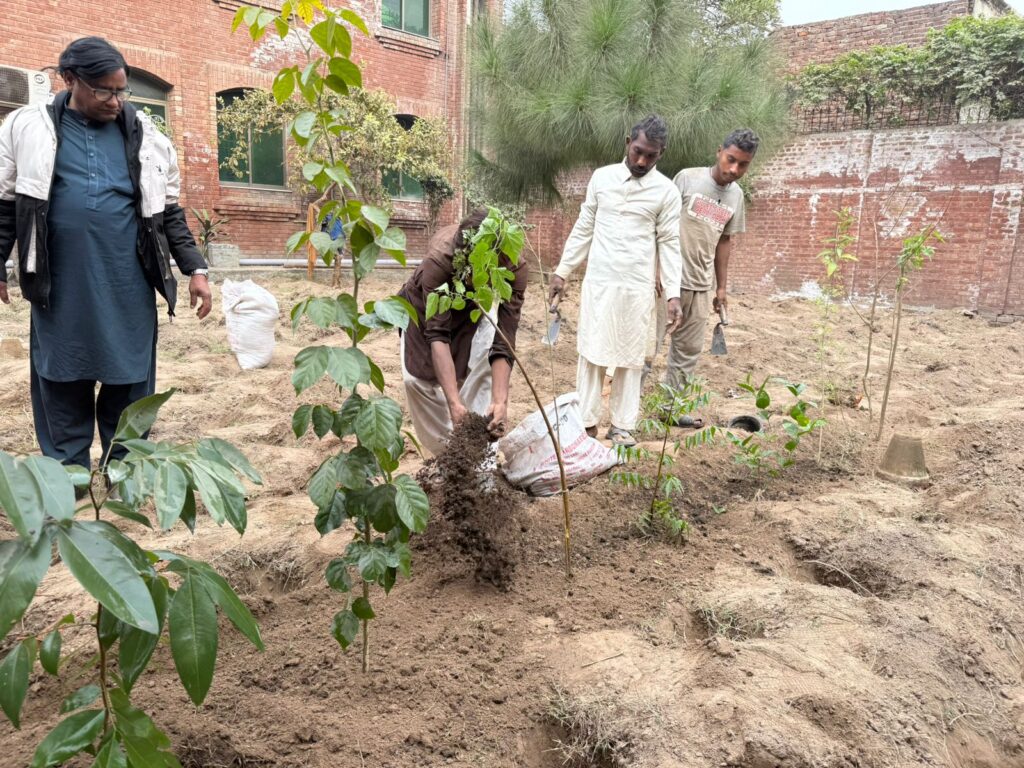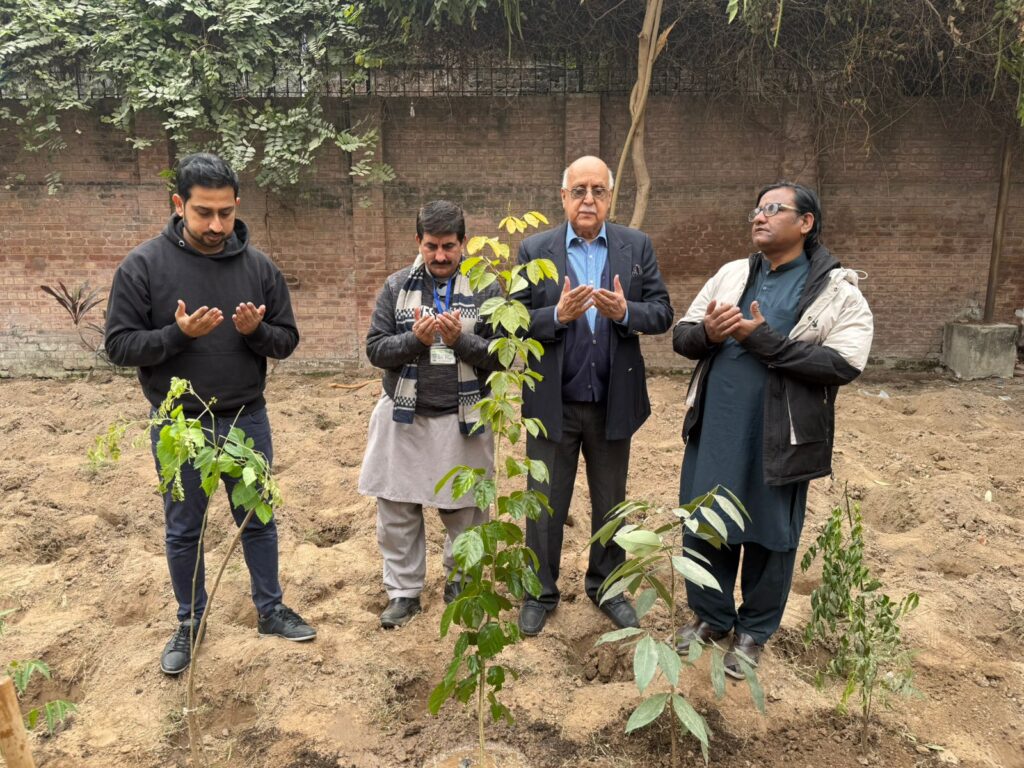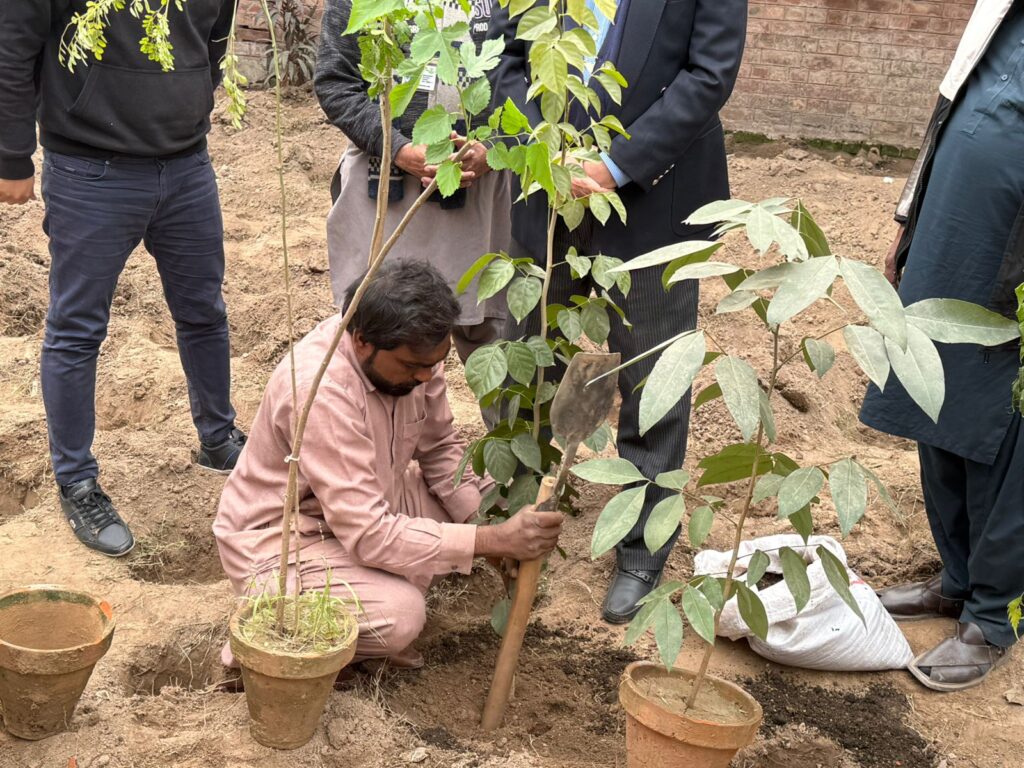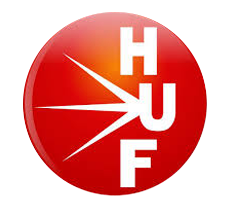Nature
- Home
- Nature
Green World
One of our objectives at HUF, an NPO working on the environment in Pakistan, is to make our country and the world greener. To achieve this, we have recently planted over 18,000 plants at:
- Mayo Hospital
- Gulab Devi Hospital
- Jinnah Hospital
- Jalo Botanical Garden
- Sundar Industrial Estate
- Various Graveyards
- Services Hospital
- Punjab Institute of Mental Health (PIMH)
- Lady Aitchison Hospital
- Parks Horticultural Authority (PHA)
- Sialkot Cantt
- Cancer Care Hospital
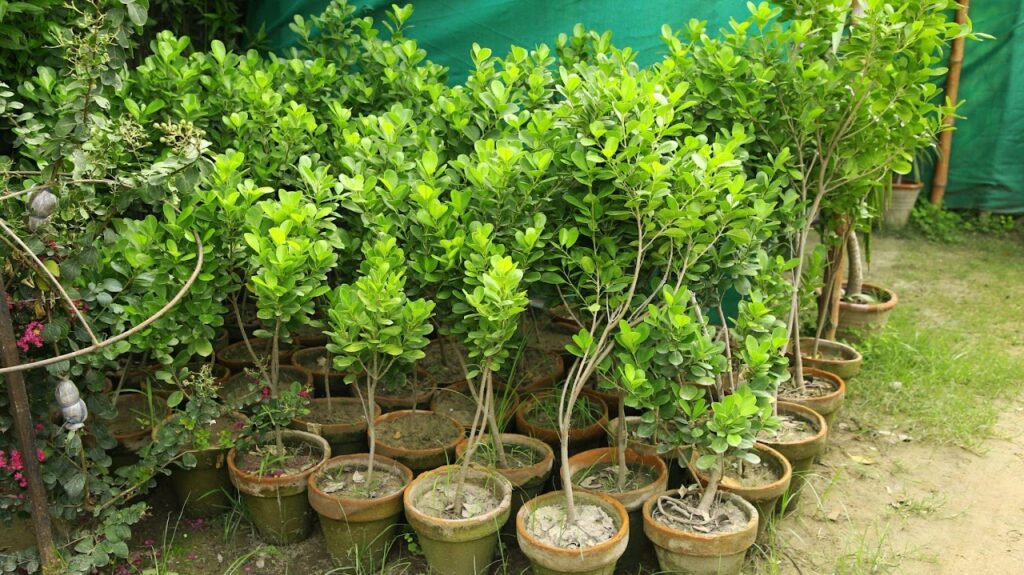
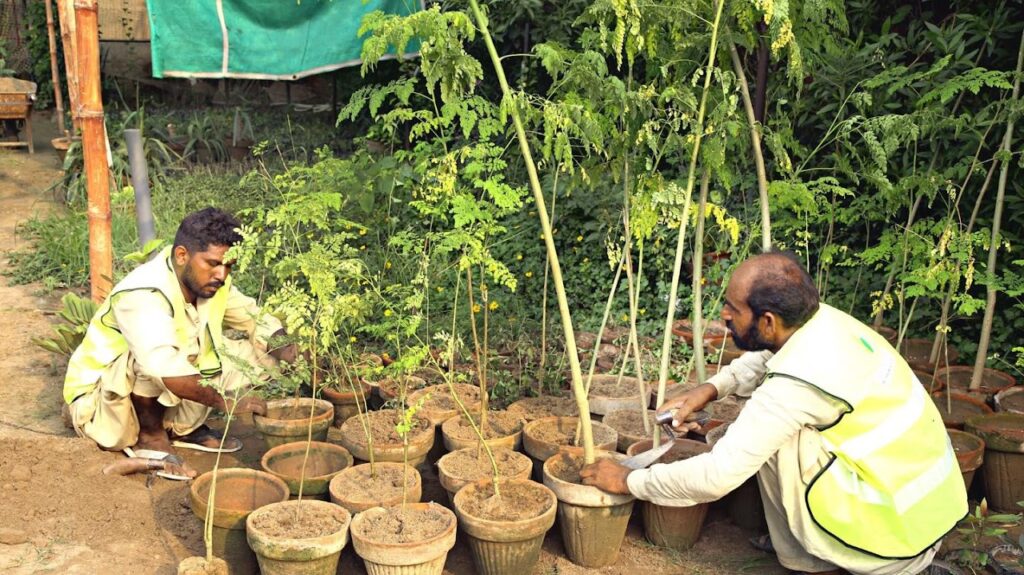
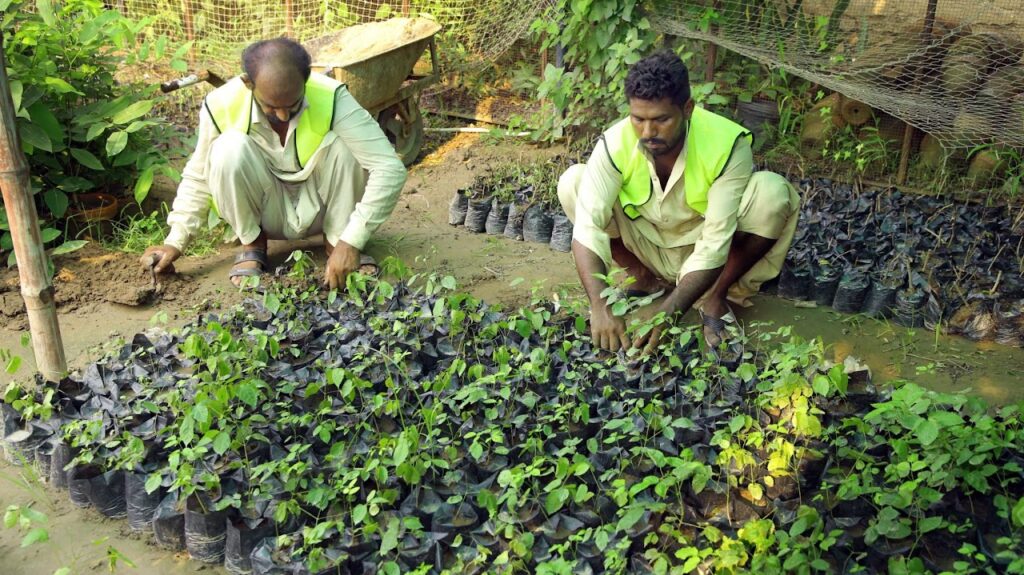
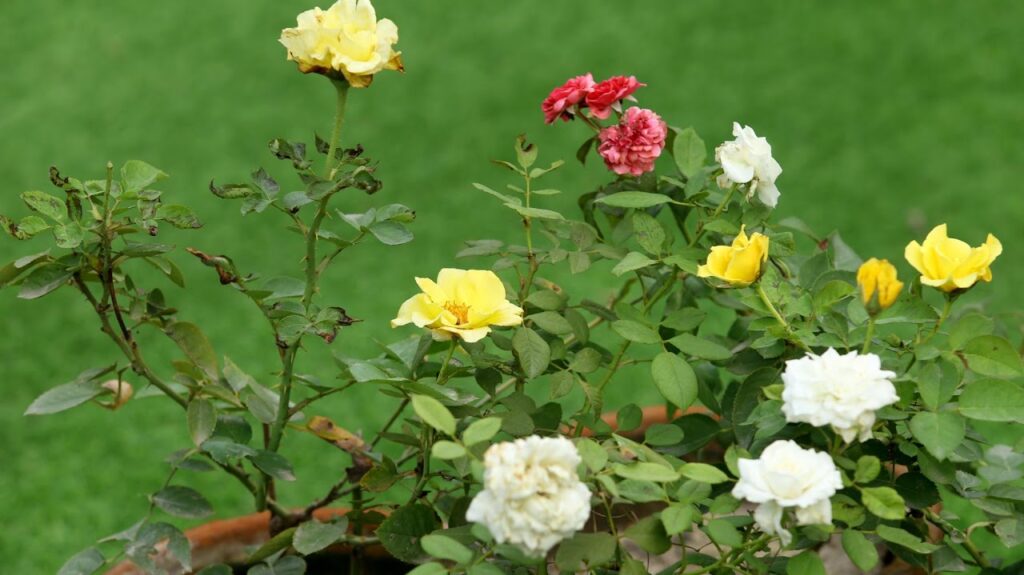
Miyawaki Forest
The Miyawaki method is an afforestation technique for cultivating fast-growing groves of native plants, with the dense, mixed planting intended to simulate the layers of a natural forest.
Developed in the early 1970s by the late Japanese forest ecologist Akira Miyawaki, the method involves the following steps:
- Determine the plant species native to a given area.
- Improve the soil by mixing in organic material.
- Plant seedlings of native trees and understory plants in a dense.
- Mixed manner (about three seedlings per square meter) meant to simulate a natural forest.
- Remove weeds from the site for up to three years after planting, if necessary.
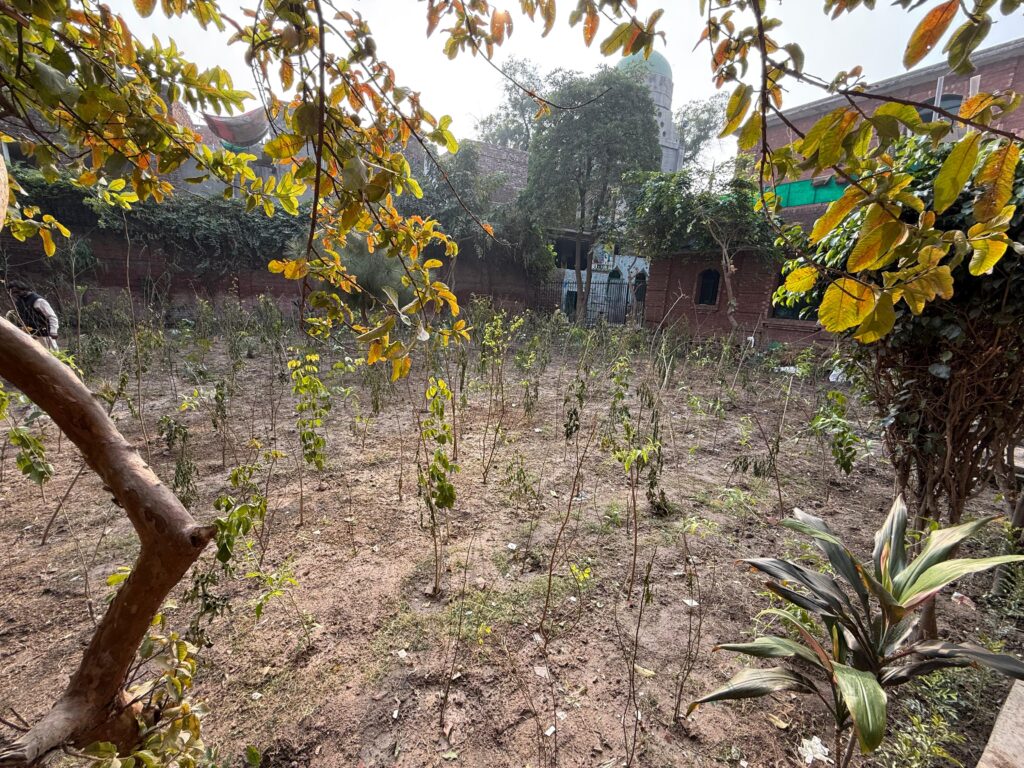
Brief Details Of Miyawaki Forestation
- Approximate number of trees per kanal 1125
- Planting distance min.- 4’ from each plant
- Pot size 12” plant size 4’/5’
- Indigenous species or plants which have been acclimatized to local conditions.
- No two plants of the same specie should be planted side by side
- Taller plants to be planted in the center in the center so that they may not hinder the sunlight.
- Covering the ground to stop weeding and retaining softness
- The following species of plants are planned for plantation in the proposed Miyawaki Forest
- Mulbery, Sheesham, Neem/Dharek, Moringa, Amaltas, Gulmohar, Raat Ki Rani, Logistonia, Sukhchain.
- Cost per kanal is PKR 1.1 million approximately including the cost of plants, transportation, labour and other sundry expenses.
Up to 14 working days required for completing the Miyawaki forest
DAY 1, 2, 3
Cutting the grass and leveling the ground
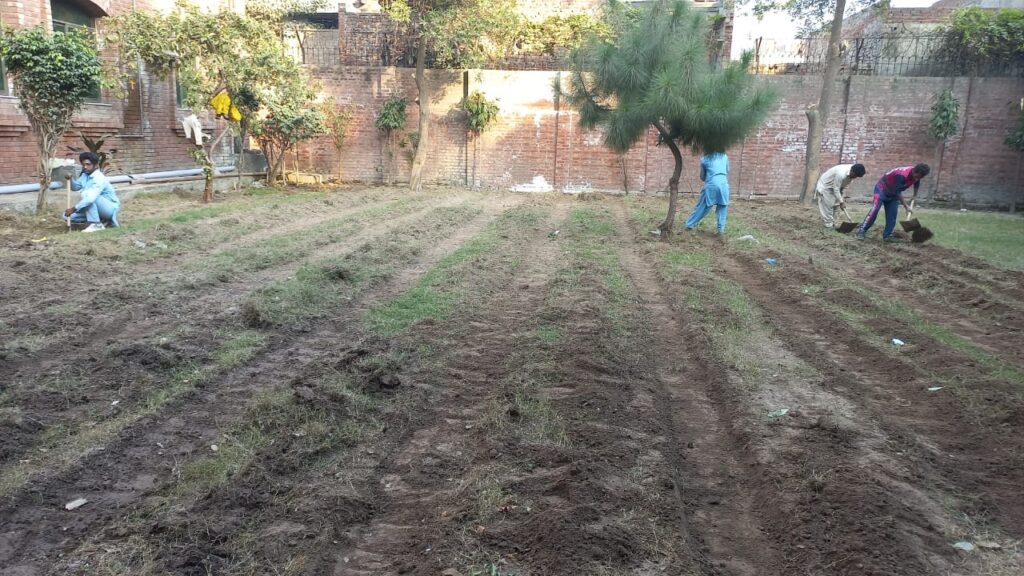
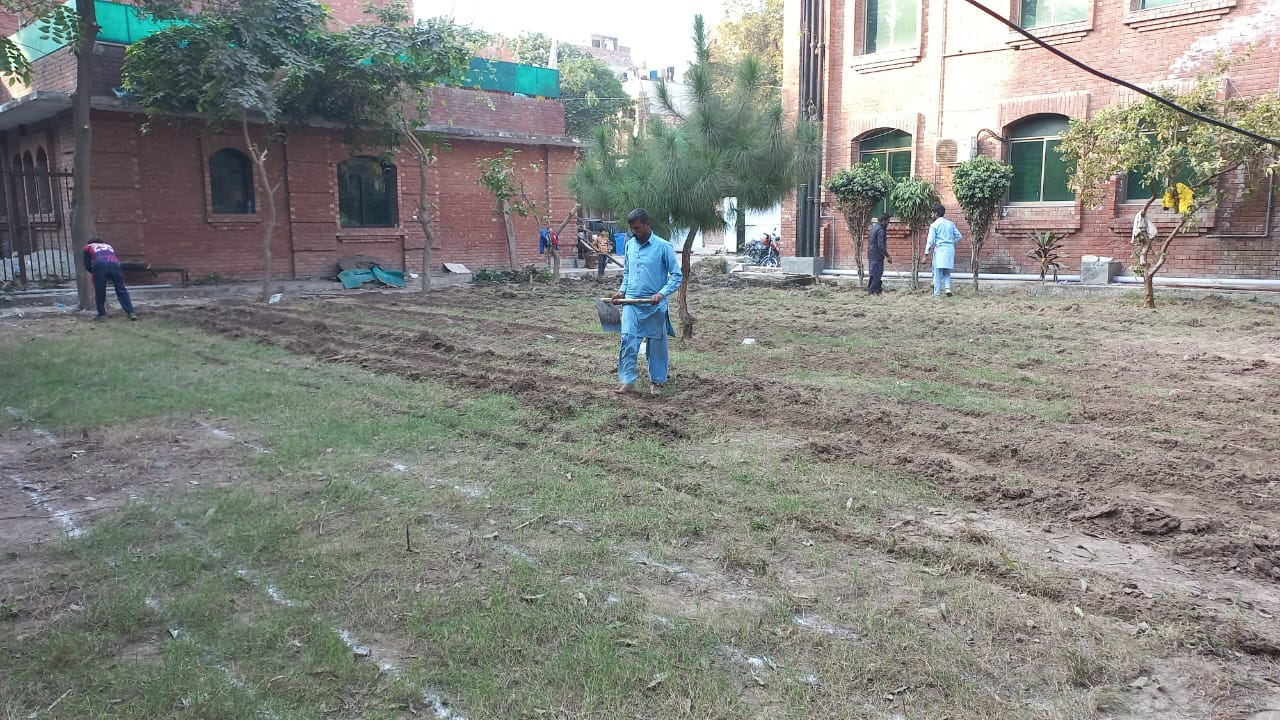
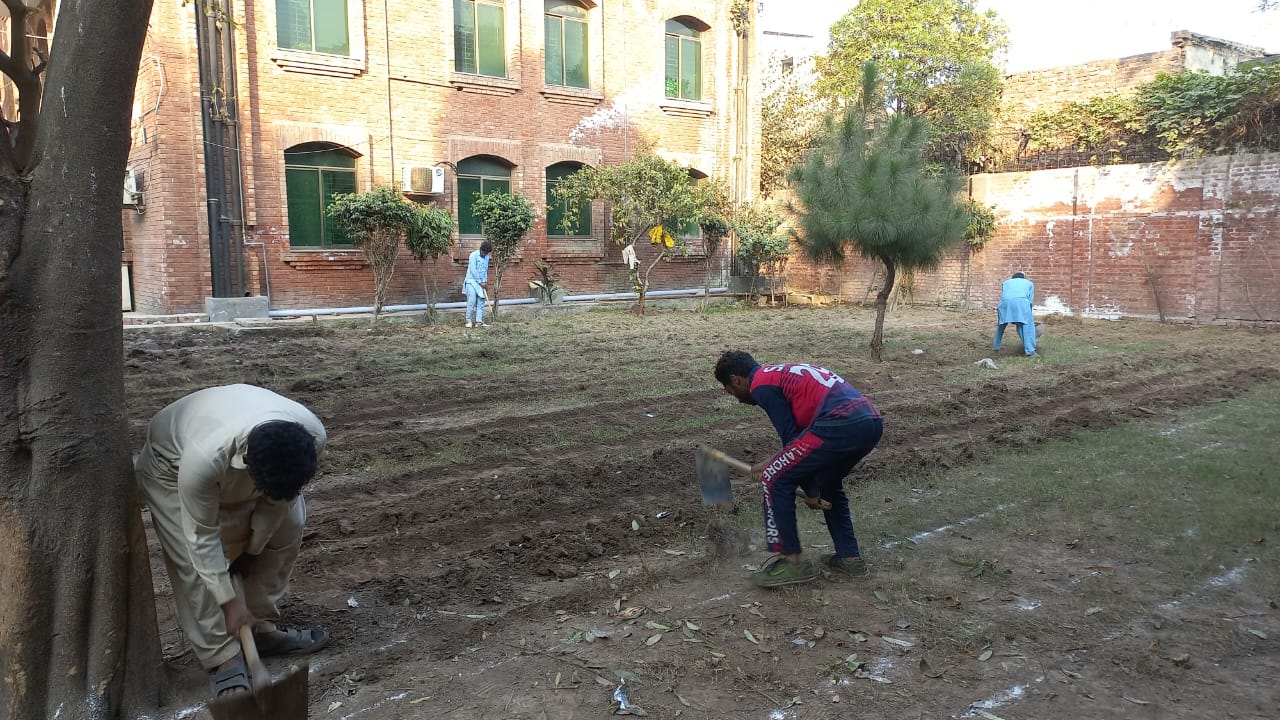
DAY 4, 5, 6
Digging 1,125 holes for planting
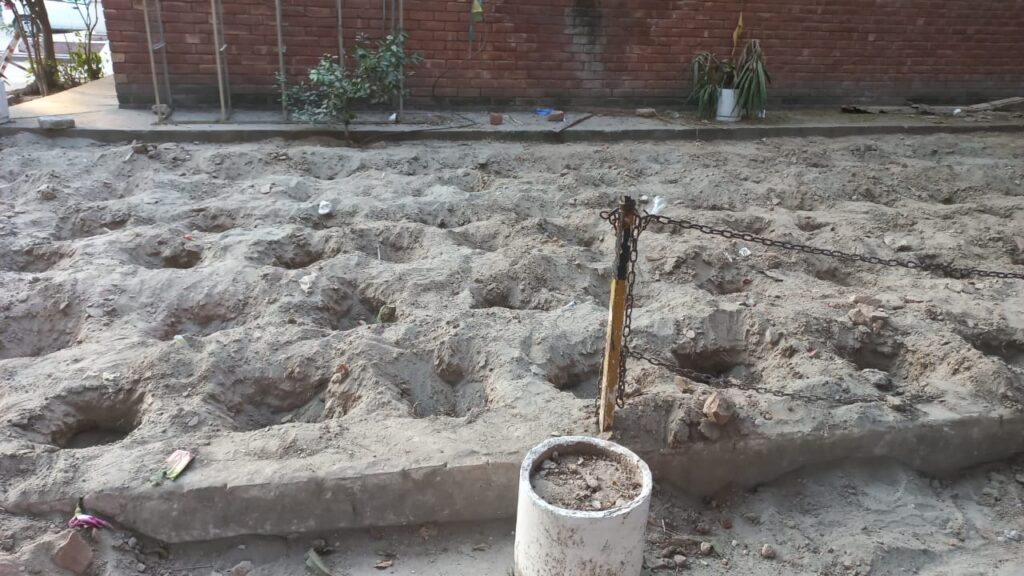
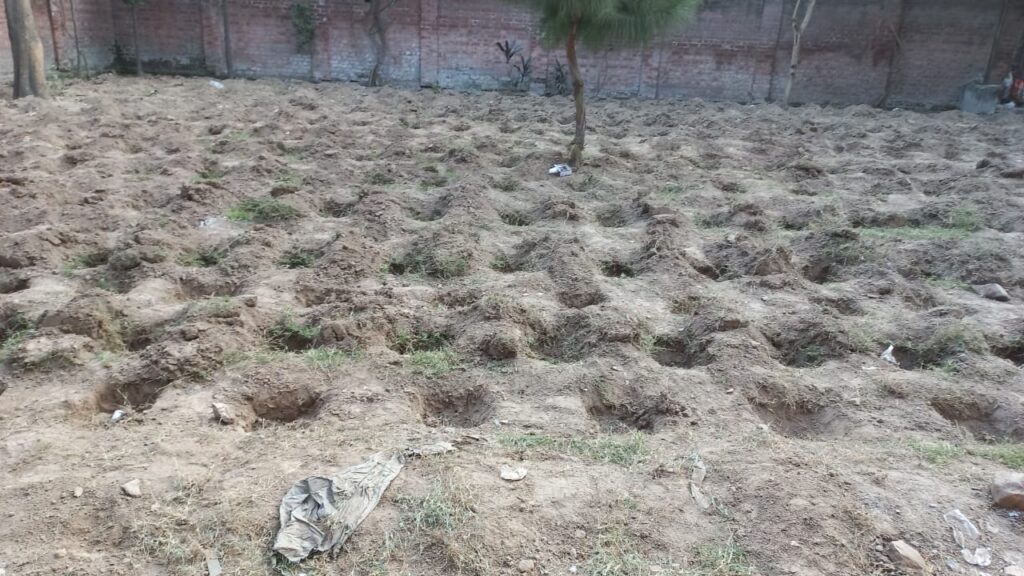
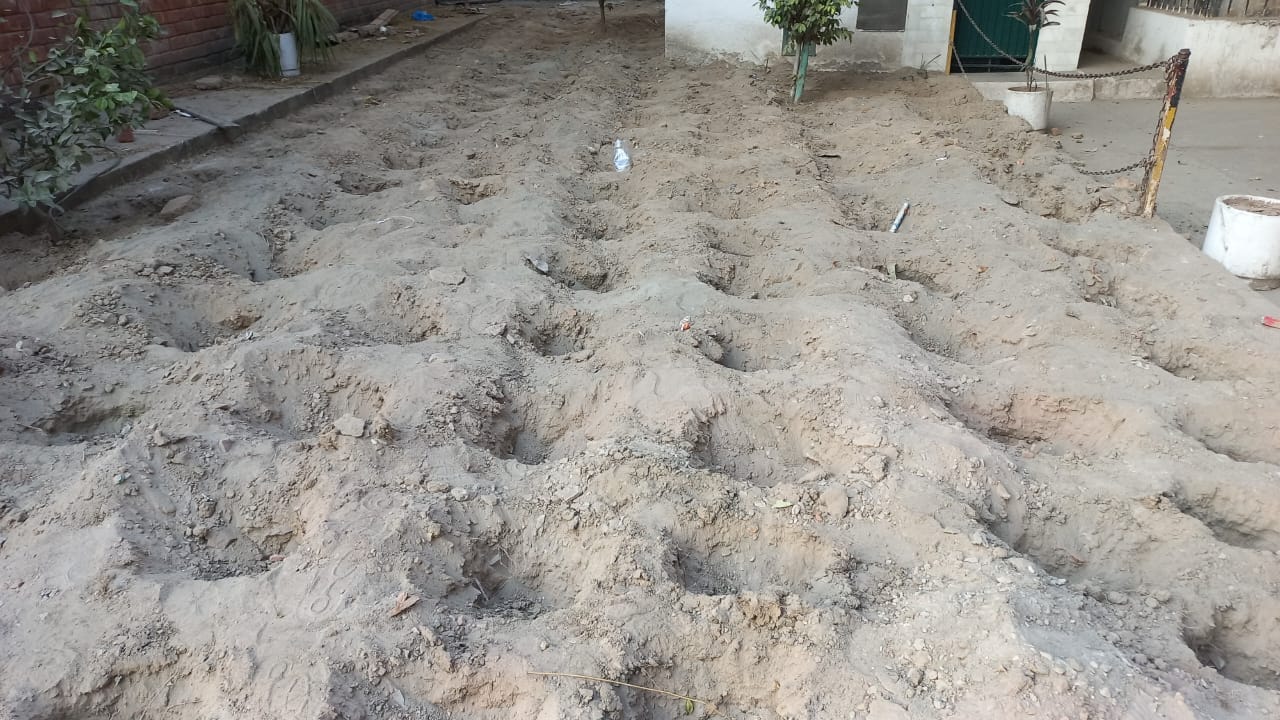
DAY 7, 8, 9.
Treating and preparing the ground
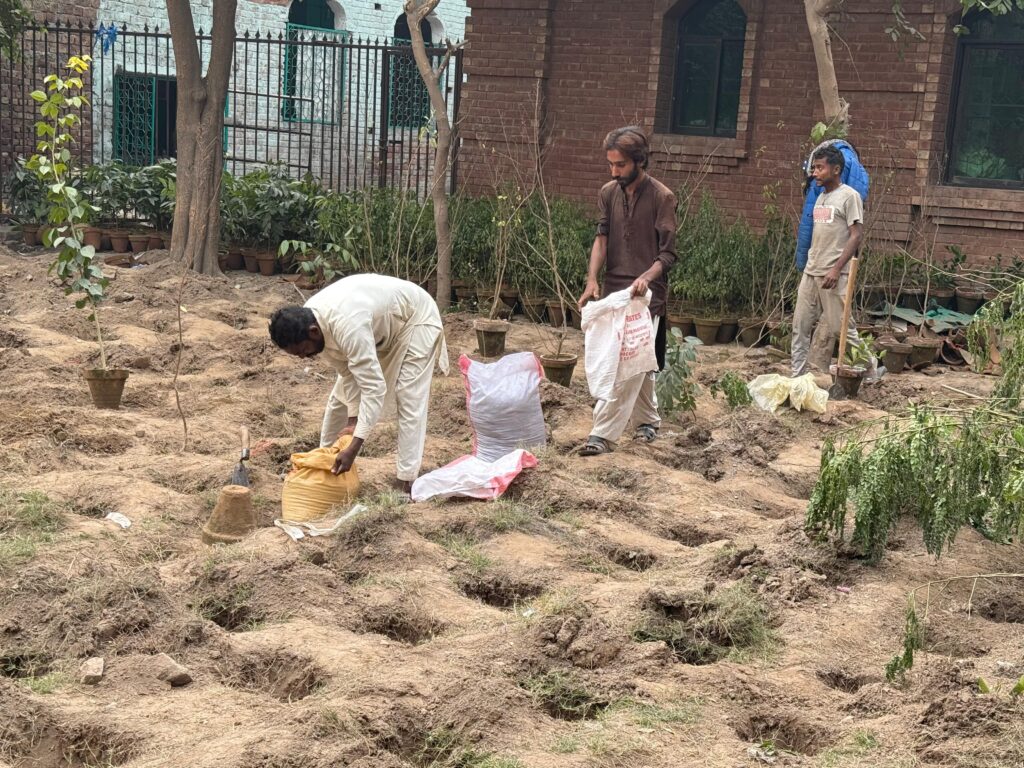
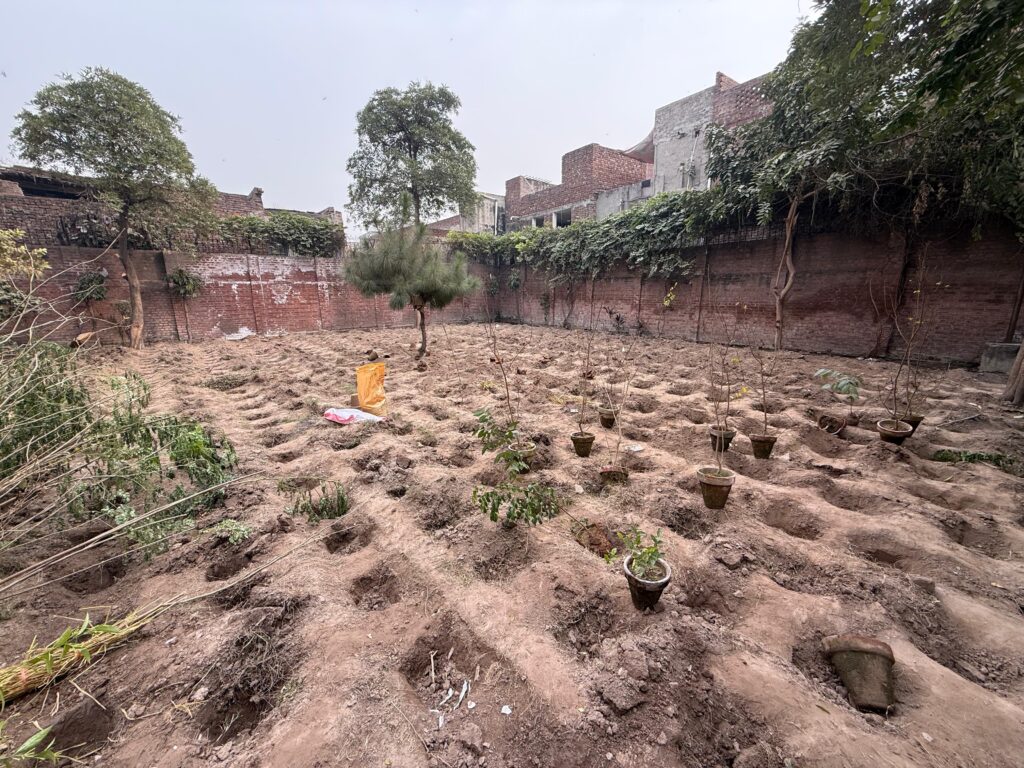
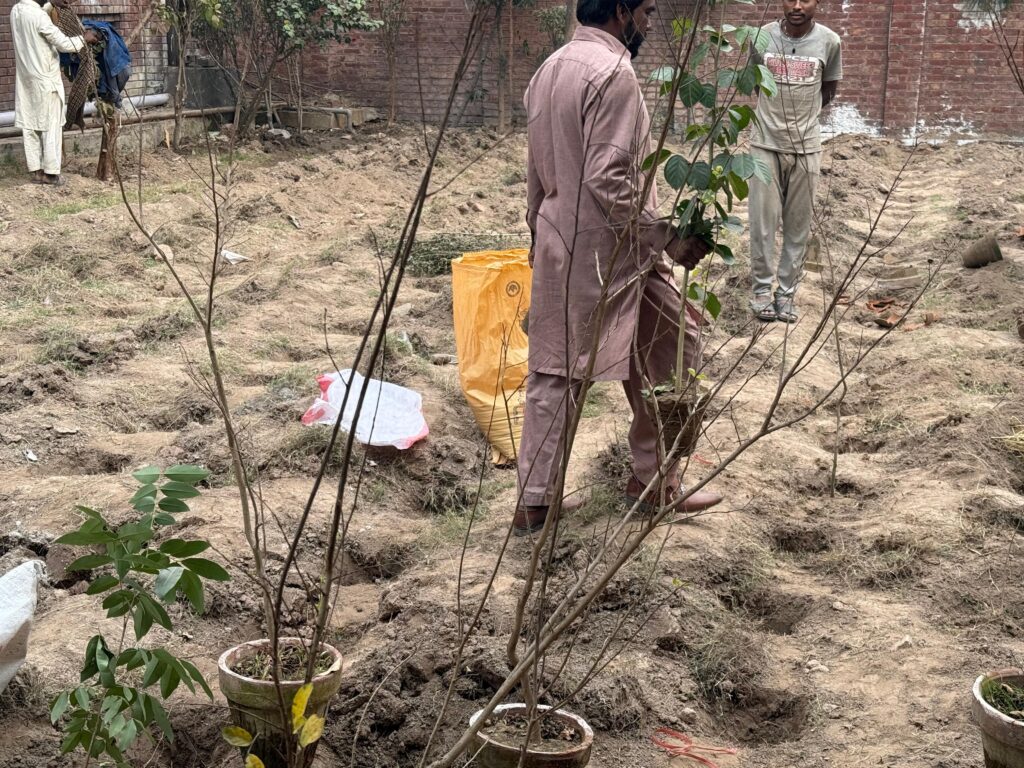
DAY 10 to 14
Sowing of plants, trees, and shrubs
